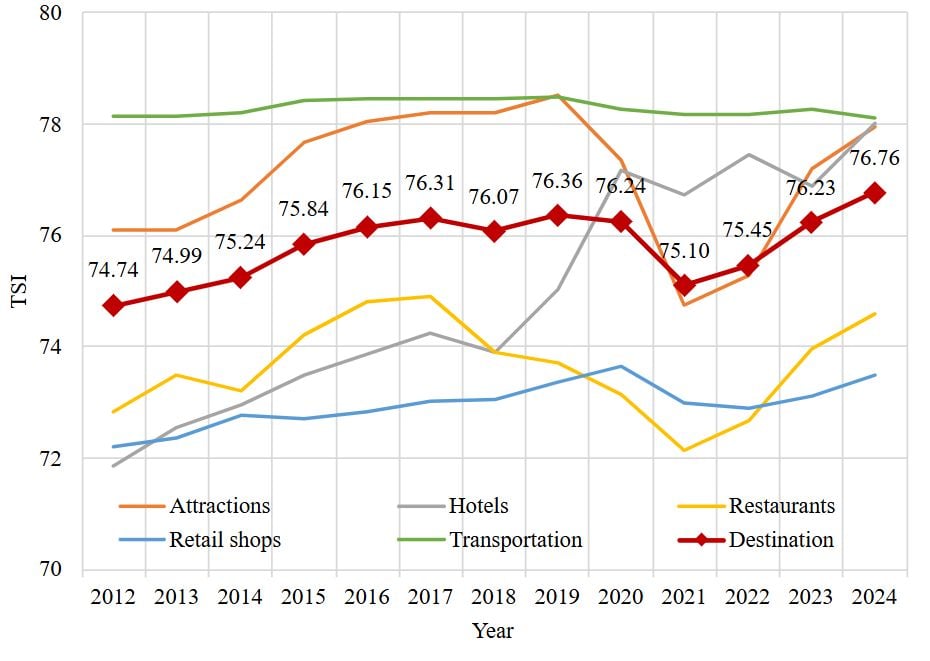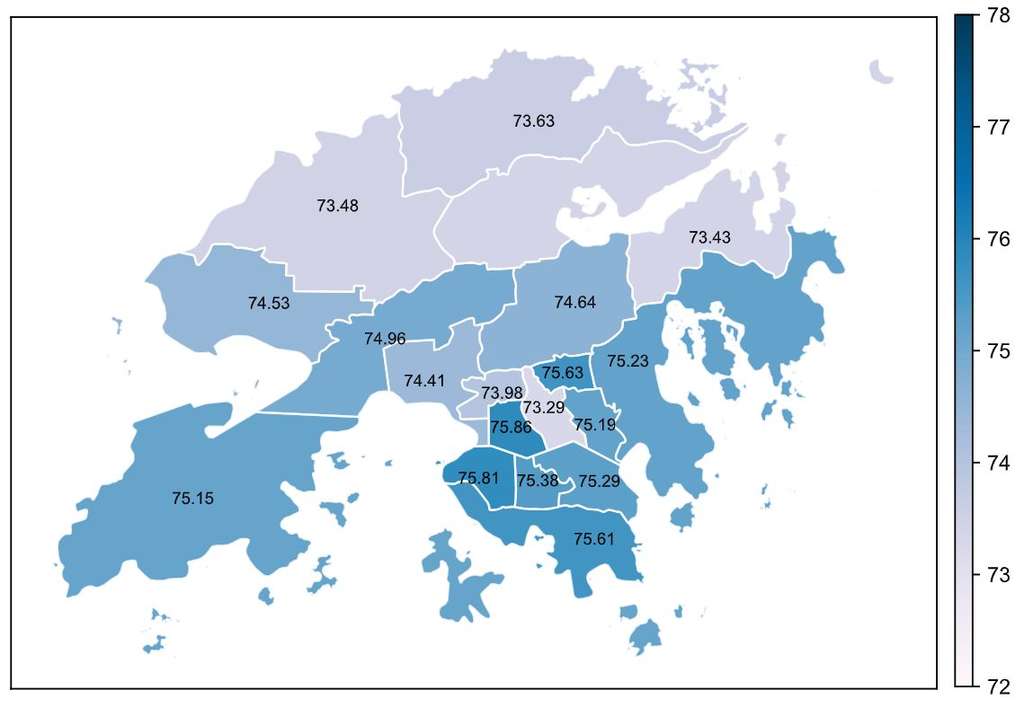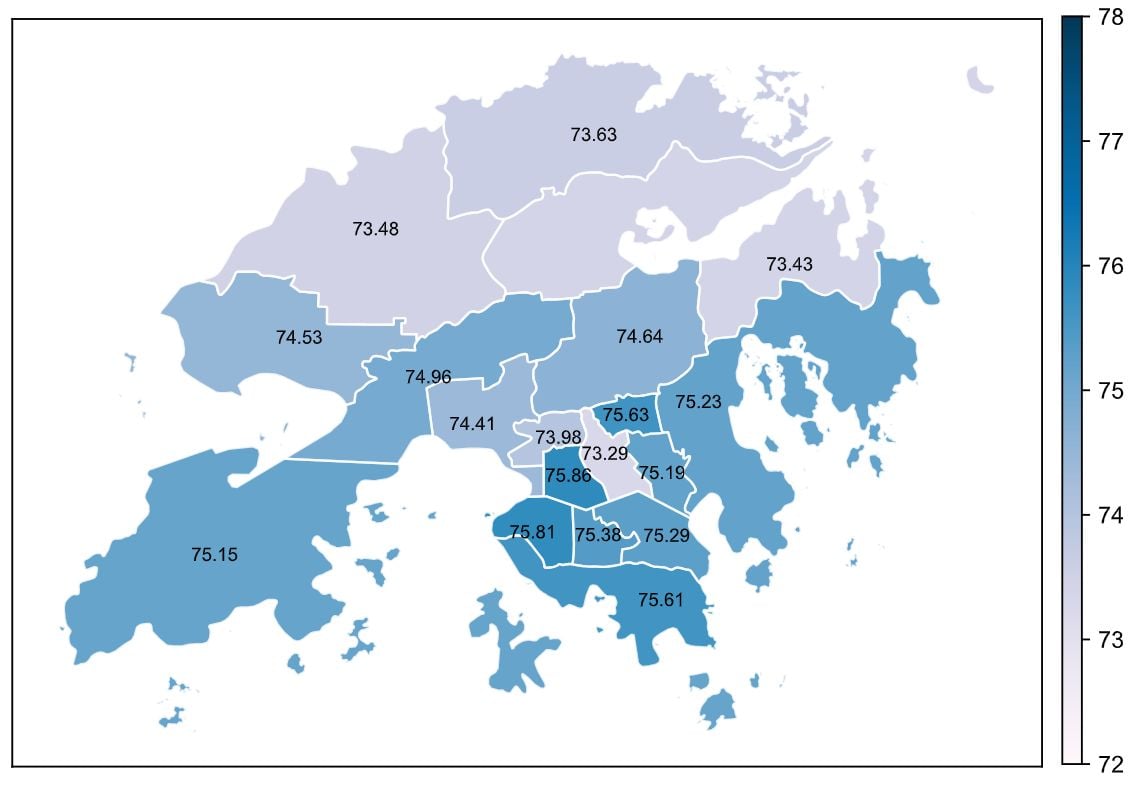The government is planning a number of measures that will help the tourism industry to develop in all areas. The Research Centre for Digital Transformation of Tourism (RCdTT) of The Hong Kong Polytechnic University (PolyU) School of Hotel and Tourism Management (SHTM) has developed an innovative, Large Language Model-based assessment framework – the Hong Kong Tourist Satisfaction Index (HKTSI) – to evaluate the satisfaction level of inbound tourists to Hong Kong from 2012 to 2024 across different tourism-related sectors, temporal scales and regions. Results show that, despite clear performance differences across different regions, the TSI has rebounded to its highest score ever after the temporary decrease during the pandemic.
Under the leadership Prof. Haiyan SONG is Principal Investigator, SHTM Associate Dean and Director of RCdTT, and Professor Chan Chak Fu and Mr. Chan Chak Fu in International TourismThe TSI, which was first introduced in 2009 using a questionnaire methodology, evaluated tourists’ satisfaction levels with different tourism services. The team transformed the framework to achieve a comprehensive and accurate analysis by adopting interdisciplinary theories that combine management science, computer science and economics, as well as leveraging advanced LLM technologies.
The enhanced TSI frame offers multidimensional analysis. It allows TSI to be measured across multiple dimensions (such service topics, service sector and trip types), timescales (monthly or annually) and geographical regions. This flexible approach gives stakeholders timely data-driven insights that can be used to guide policy development, strategic decision making, and service improvement.
Hong Kong’s ability to compete as a tourism hub in the world depends on its ability to deliver exceptional service that meets traveller expectations. The RCdTT’s development of the TSI demonstrates our commitment to advancing Hong Kong as a destination of world-class quality for international tourists. Prof. Kaye CHON Dean, Chair, Walter and Wendy Kwok Faculty Foundation Professor of International Hospitality Management
The team gathered more than 1.25 million TripAdvisor reviews, a global Online Travel Agency Platform, which covered 13,694 Hong Kong tourism service providers from five service sectors: attractions, hotels restaurants, retail stores and transportation. The LLM-based framework used Alibaba’s General Text Embedding Model to extract the semantic insights from different language and format visitor reviews.
These findings include:
- The most common topics of review are “service reliability and security”. This shows that trust in travel services and reliability of tourism has become the most important factor for tourist satisfaction.
- Hong Kong TSI levels have been steadily rising since 2012 and consistently scored above 75 points in the past decade. Despite a temporary drop during the pandemic period, Hong Kong TSI had recovered to its pre-pandemic level by 2024.
- Hong Kong has a well-developed infrastructure for public transport, which is enhancing the visitor experience. Restaurants and retail shops, on the contrary, have fallen behind due to factors mainly related to prices. Retail shops are losing their traditional price advantage, largely due to the increase in e-commerce. Restaurants in Hong Kong are also expensive. This leads some tourists to look for more affordable options on the mainland.
Figure 1: TSI at destination and sector levels— Source: Hong Kong PolyU - From a spatial perspective, all districts recorded TSI scores above 73 points, yet a north-south divide persists, with higher satisfaction levels in the southern regions and lower levels in the north. The highest TSI values were concentrated along both sides of Victoria Harbour, such as in the Central and Western, and Yau Tsim Mong Districts, while Kowloon City District recorded considerably lower TSI levels, creating a distinct localised satisfaction gap compared to its surrounding districts.
Figure 2: TSI Spatial distribution— Source: Hong Kong PolyU - Tourists with different trip types exhibit significant variations in their satisfaction levels towards Hong Kong. Business tourists generally report the highest satisfaction across most sectors, whereas solo travellers exhibit lower satisfaction overall. This may be due to their different needs: business tourists typically prioritise standardised functional requirements, while the solo travellers place greater emphasis on unique and personalised experiences.
- Language-based analysis further highlights differences in the TSI, with reviews in English and European languages yielding higher satisfaction levels than the Japanese- and Korean- language reviews. This highlights the impact of cultural differences on tourist satisfaction.
Objectives of the TSI
The LLM-based TSI framework is crafted to deliver regular, data-driven insights that benefit tourism service providers, policymakers and destination management organisations. Through topic-level TSI analysis, for instance, businesses can pinpoint specific areas for service enhancement, while destination- and sector-level assessments provide a broader perspective for strategic planning and policy formulation. Additionally, monthly TSI updates ensure that assessment results remain timely and relevant, enabling swift and informed decision-making.
Although the Hong Kong economy has largely recovered from disruptions caused by the pandemic, challenges such as labour shortages, supply constraints, changing economic conditions, evolving consumer behaviour and competition persist. Highlighting the significance of the TSI in tackling these challenges and facilitating relevant decision-making and planning, Prof. Song remarked, To sustain ongoing recovery, accurate and timely assessment of the satisfaction level of inbound tourists is essential for policymakers and industry practitioners to develop sustainable tourism strategies that will further fortify Hong Kong’s tourism advantages, propel its tourism industry and ultimately promote long-term economic growth in the City.
As technology advances, both destinations and visitors increasingly rely on information and communication technologies to make their decisions. In support of the long-term sustainability of the tourism sector, by harnessing artificial intelligence, LLM and big data analytics, the enhanced TSI assessment framework aims to offer more precise and targeted advice for strengthening tourism service quality and bolstering Hong Kong’s global competitiveness.
About the Research Centre for Digital Transformation of Tourism
The mission of Research Centre for Digital Transformation of Tourism (RCdTT) at PolyU focuses on advancing the understanding and implementation of digital technologies in the tourism industry. Research is being conducted on how digital technologies can be used to enhance tourism services and improve customer satisfaction. The centre’s goal is to provide solutions and insights that will help tourism stakeholders to adapt to technological change, optimize operations, and remain competitive within a rapidly changing digital landscape.
PolyU School of Hotel and Tourism Management
The School of Hotel and Tourism Management of The Hong Kong Polytechnic University, which has existed for over four decades now, has developed a unique vision of hospitality and tourist education and is a world leader in this field. Ranking No. For the eighth year in a row, ShanghaiRanking’s Global Ranking of Academic Subjects in 2024 ranked the University No. The University Ranking by Academic performance in 2023/2024 ranked the “Commerce, Management, Tourism and Services”, category No.1 globally for the seventh consecutive year; the CWUR Rankings by Subject 2017 rated the subject area “Hospitality, Leisure, Sport & Tourism” as the No. 1 in the world in the “Hospitality, Leisure, Sport & Tourism” subject area by the CWUR Rankings by Subject 2017; and ranked No. In the QS World University Rankings for Subject 2025 in Asia, the SHTM was ranked No. Leading Hospitality and Tourism.
The School was founded to meet the needs of the academic and industrial communities by advancing education and spreading knowledge. The SHTM boasts a large international faculty of more than 90 members, hailing from 21 different countries and regions. Programmes are offered at all levels from undergraduate to PhD. Through Hotel ICON – the School’s innovative teaching and researching hotel – and as a key part of the paradigm shift in hospitality education and training, the SHTM advances teaching, learning, and research and inspires a whole new generation of passionate and pioneering professionals who will take their places as leaders of the hospitality industry.
Website: https://www.polyu.edu.hk/shtm/.





